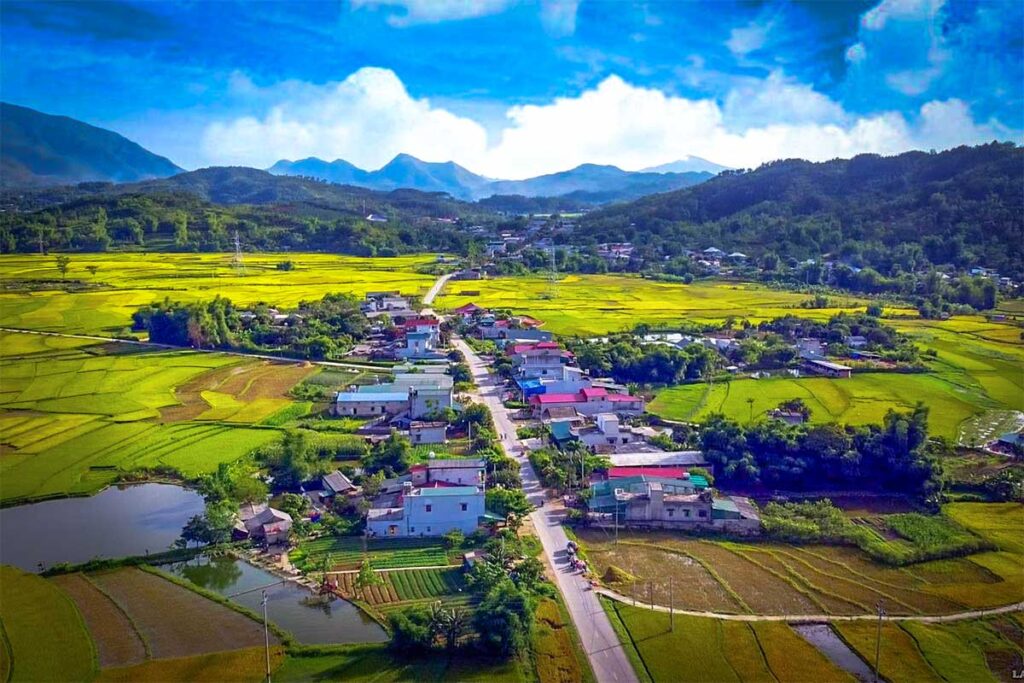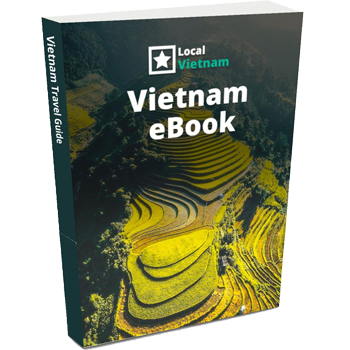About Lai Chau
Lai Chau, located in the far northwest of Vietnam, is both a city and a province surrounded by some of the country’s most iconic regions. It shares borders with Lao Cai, the province of Sapa, to the east, and Dien Bien Phu to the southwest, known for its pivotal role in Vietnam’s fight against French colonial rule. With its remote location, approximately 450 kilometers from Hanoi, Lai Chau is a less-traveled gem that offers a quieter, more authentic experience.
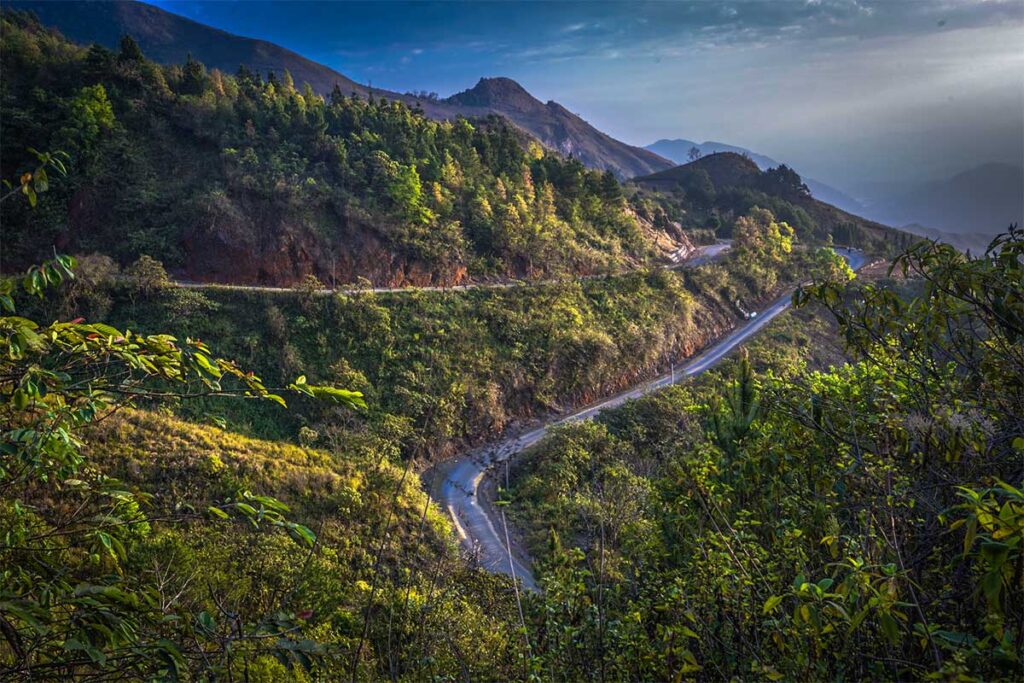
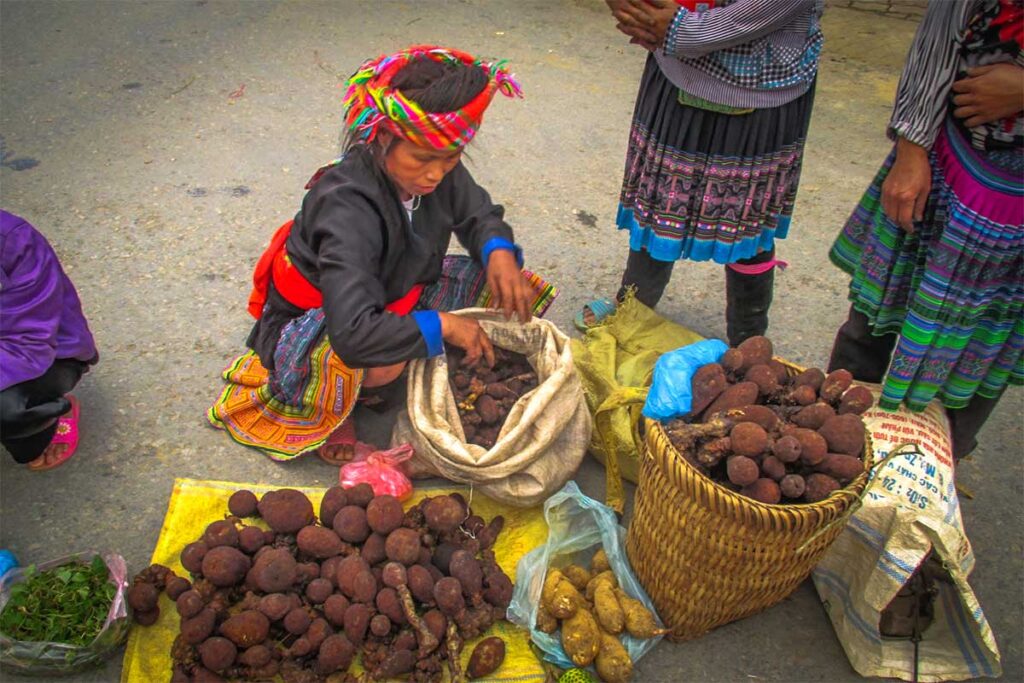
The province is a land of towering peaks, with over 60% of its terrain sitting above 1,000 meters. Home to more than 20 ethnic minority groups, Lai Chau provides a rich cultural tapestry, reflected in the colorful markets and traditional villages scattered across its valleys and hillsides. While the region boasts breathtaking landscapes and fascinating cultural heritage, it remains largely unexplored, as most travelers stick to more familiar destinations like Sapa. For adventurous travelers, Lai Chau offers a unique opportunity to discover a side of Vietnam that feels untouched by mass tourism, with plenty of things to do in Lai Chau for nature and culture enthusiasts alike.
Is Lai Chau worth to visit?
Whether Lai Chau is worth visiting depends on what kind of traveler you are. If you’re seeking luxury or a variety of organized activities, Lai Chau might not meet your expectations—accommodation is basic, and trekking routes are less developed compared to nearby Sapa.
However, if you’re an adventurous traveler who enjoys exploring off-the-beaten-path destinations, Lai Chau is a fantastic choice. The lack of crowds, untouched landscapes, and authentic local culture make it a hidden gem for those who value solitude and discovery. Things to do in Lai Chau often involve motorbike journeys, ethnic village visits, and breathtaking mountain scenery, but it’s best suited for those who prefer independent exploration.
Best time to visit Lai Chau
Lai Chau is located in northern Vietnam, where the climate features distinct dry and rainy seasons, similar to its neighbors Sapa and Mu Cang Chai. The best time to visit Lai Chau is during the dry season, which runs from October to April, offering cool and clear weather ideal for trekking and exploring the region’s dramatic landscapes.
For a vibrant display of lush green rice terraces, visit between May and June when the fields are in full bloom. Alternatively, September is the golden harvest season, providing stunning views of terraced fields shimmering in the sunlight. The rainy season (June to September) brings heavy downpours and muddy trails, making travel and trekking more challenging but rewarding for those seeking unique, lush rice fields.
How to travel to Lai Chau
Lai Chau is located in northern Vietnam, approximately 450 kilometers from Hanoi, the nearest major transportation hub. Travel to this remote destination requires some planning, as there are no direct flights or train routes. Depending on your itinerary, Lai Chau can also be reached from nearby Sapa, which is a more accessible and popular tourist destination.
Plan a custom trip to Lai Chau
We can help you build a full trip through Lai Chau and beyond—including transport, sightseeing, and optional extensions to Sapa or Mu Cang Chai.
From Hanoi to Lai Chau
Traveling from Hanoi to Lai Chau usually involves an overnight bus journey, which takes around 7 to 8 hours. Most buses are sleeper buses, offering a practical way to travel overnight and arrive in Lai Chau early in the morning, saving daytime hours for exploration. However, keep in mind that sleeping on buses may not be comfortable for everyone, and night travel can have its challenges.
From Sapa to Lai Chau
For those already in Sapa, Lai Chau is just a two-hour journey away. Many buses traveling to Lai Chau pass through Sapa, making it convenient for budget-conscious travelers.
For a more scenic experience, consider a private transfer, which allows you to enjoy breathtaking views along the way, particularly the Tram Ton Pass, Vietnam’s highest mountain pass.
Other options include:
- Renting a motorbike: Best suited for experienced riders, this offers the freedom to explore remote areas at your own pace.
- Motorbike tours: A guided motorbike tour with a local driver is an excellent way to combine transportation with sightseeing, either as a one-day trip to Lai Chau or a longer multi-day adventure.
Lai Chau travel tips
How long to stay here?
To explore Lai Chau’s highlights, plan for at least two days, especially if combining it with neighboring Lao Cai province in a motorbike loop. A two-to-five-day itinerary allows for a relaxed pace and time to immerse yourself in the region’s natural beauty and cultural diversity. For those on a tighter schedule, a quick visit to key spots like the Tram Ton Pass or local ethnic markets can be done in one day.
What to prepare
Lai Chau is a remote area with limited shopping options. Stock up on essentials in Hanoi or Sapa before your trip. Bring a rain jacket, sunscreen, insect repellent, and comfortable walking shoes for trekking. Snacks, a reusable water bottle, and cash are also recommended, as ATMs may be scarce in rural areas.
Getting around Lai Chau
Car with driver
Hiring a private car with a driver is an excellent option for sightseeing. Drivers usually follow a fixed itinerary and wait at each stop. Keep in mind that most drivers are not fluent in English and may not understand your preferences without clear communication.
Driving motorbike or scooter
Exploring Lai Chau by motorbike is a rewarding adventure, especially for experienced riders. Scooters can often be rented from local accommodations. While traffic is light, riding in mountainous terrain requires skill and confidence. This is not the place to learn to ride.
Where to go next
- Sapa: A two-hour journey takes you to this well-known destination for trekking and cultural experiences.
- Dien Bien Phu: Ideal for history buffs interested in learning about the final battle of the First Indochina War.
- Mu Cang Chai: Famous for its breathtaking rice terraces, especially during the harvest season.
Things to do in Lai Chau
Nestled in the remote mountains of northwest Vietnam, Lai Chau offers a serene escape with its natural beauty, unique cultural heritage, and unspoiled landscapes. From breathtaking mountain passes to tranquil waterfalls and expansive rice fields, the province promises a quiet retreat for travelers seeking to venture off the beaten path. Below are some of the best things to do in Lai Chau.
1. Tram Ton Pass
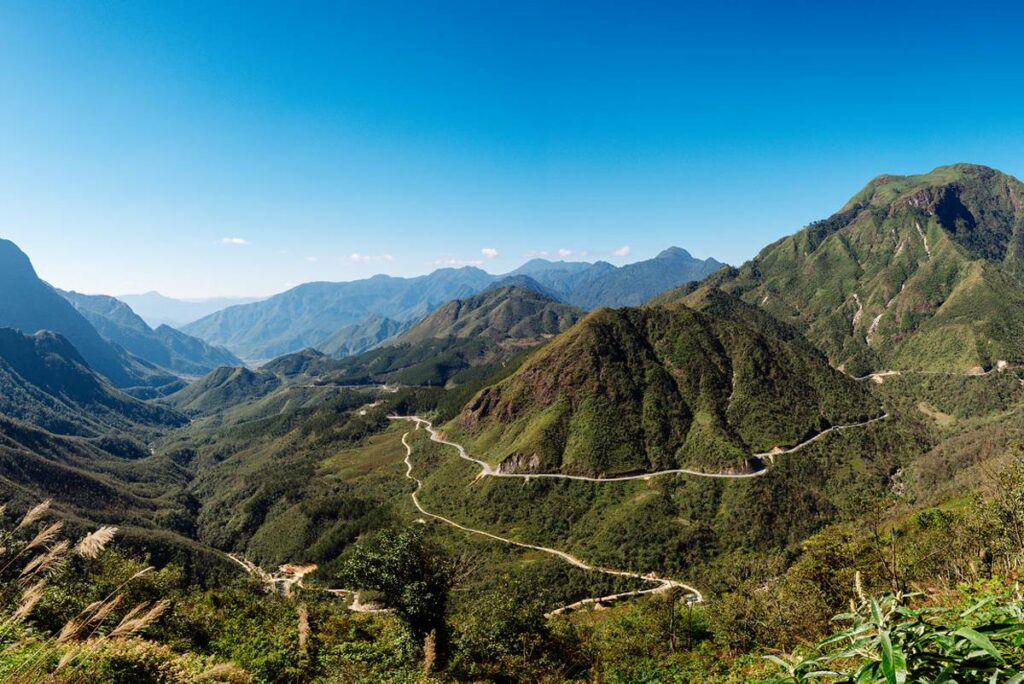
The Tram Ton Pass, also known as Heaven’s Gate, is Vietnam’s highest mountain pass, reaching an altitude of 1,900 meters. It connects Lai Chau and Sapa, offering panoramic views of rolling mountains, lush valleys, and dramatic cliffs. A visit here is not just about the destination but the journey itself, as the winding road provides some of the most spectacular scenery in northern Vietnam.
2. Love Waterfall
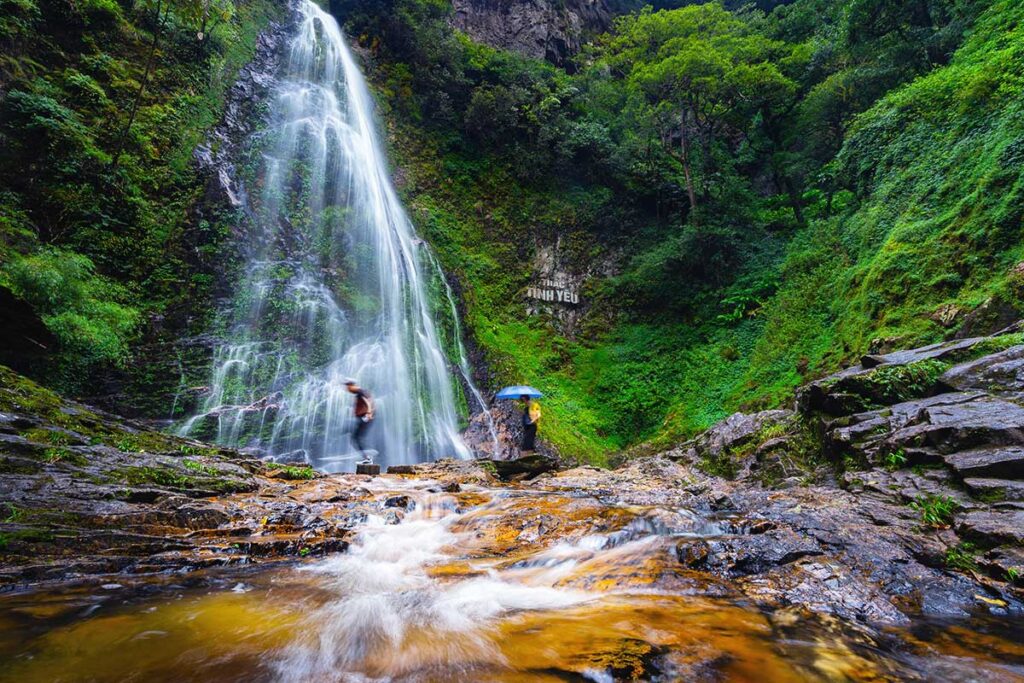
Nestled in the verdant forests near the Tram Ton Pass, Love Waterfall is a peaceful retreat for nature lovers. The 70-meter waterfall cascades into a natural pool surrounded by lush greenery. A short but rewarding hike leads to this serene spot, where you can relax and enjoy the cool, refreshing atmosphere.
3. Muong Than Field
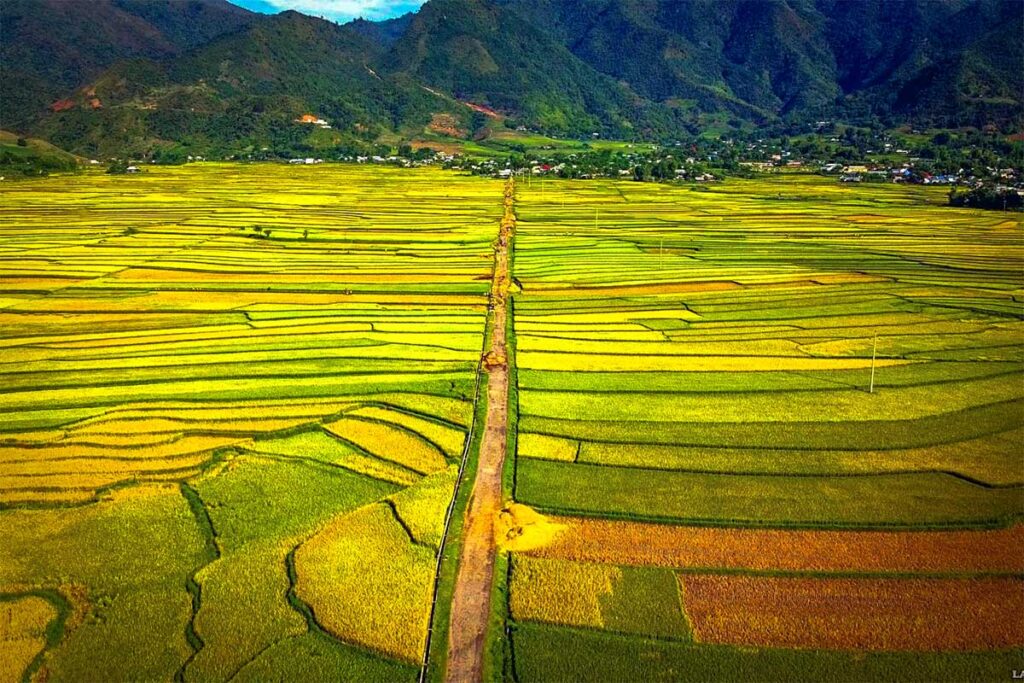
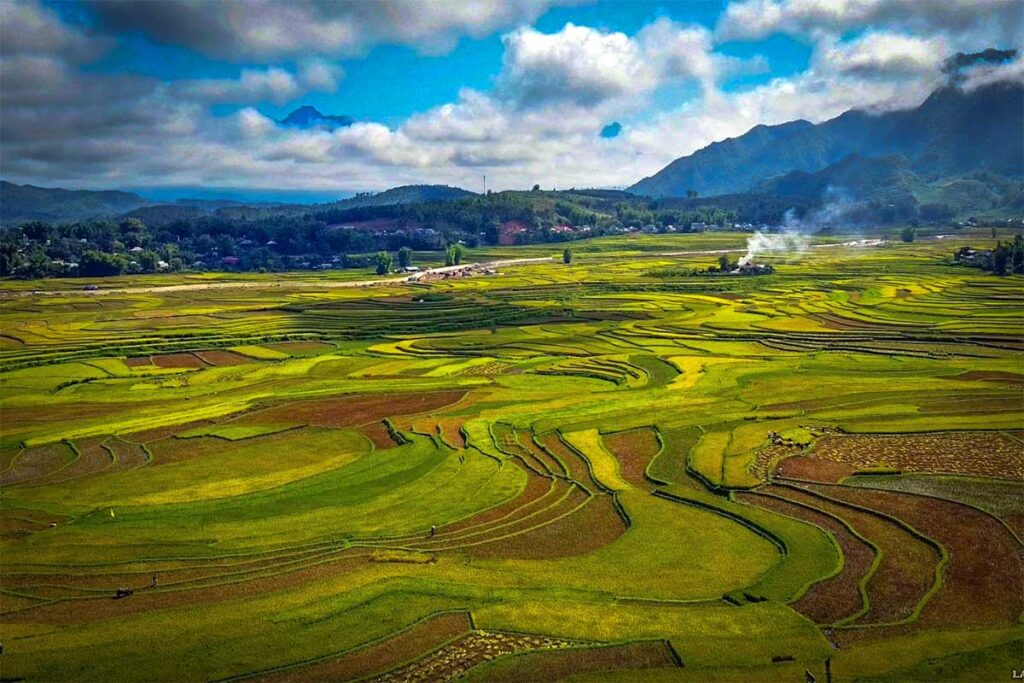
Muong Than Field, located in Than Uyen District, is one of Vietnam’s most picturesque rice fields, spanning over 2,000 hectares at an elevation of 600 meters. Whether covered in vibrant green shoots during planting season or glowing gold at harvest, the fields offer a stunning visual feast. This area also provides an authentic glimpse into rural life, as it is worked by local ethnic communities using traditional farming techniques.
4. Exploring Ethnic Villages
Lai Chau’s ethnic villages are a window into the province’s cultural diversity. Home to 20 ethnic groups, including the Thai, H’Mong, Dzao, and Giay, these communities preserve unique traditions, from colorful clothing to distinctive stilt houses. Villages like Si Thau Chai not only provide a glimpse into local life but also offer homestays, allowing visitors to immerse themselves in authentic cultural experiences.
5. Sin Ho Plateau
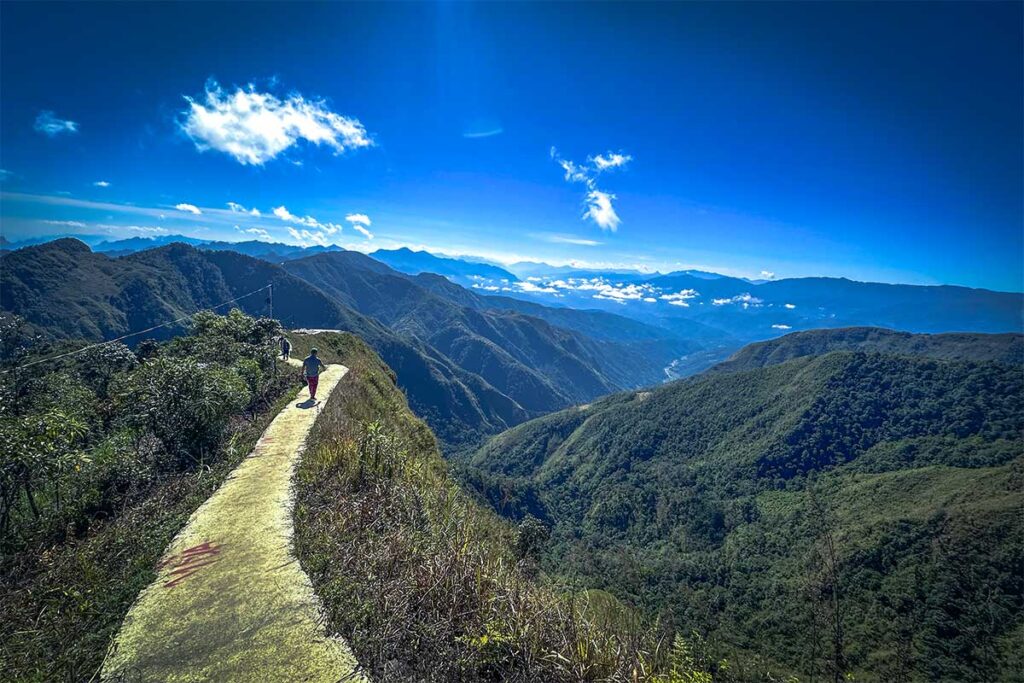
Known as the “second Sapa,” Sin Ho Plateau lies 60 kilometers southwest of Lai Chau city. This elevated region boasts panoramic views of misty mountains, lush forests, and terraced fields. A visit here combines stunning landscapes with insights into local traditions, as many ethnic minority groups inhabit the area.
6. Lai Chau Central Market
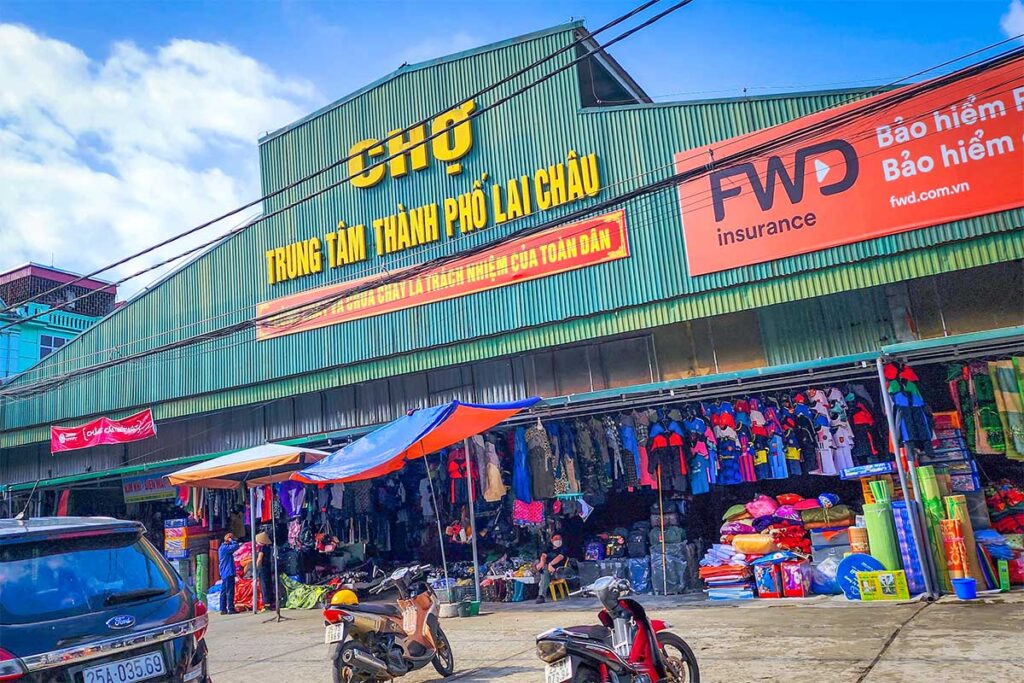
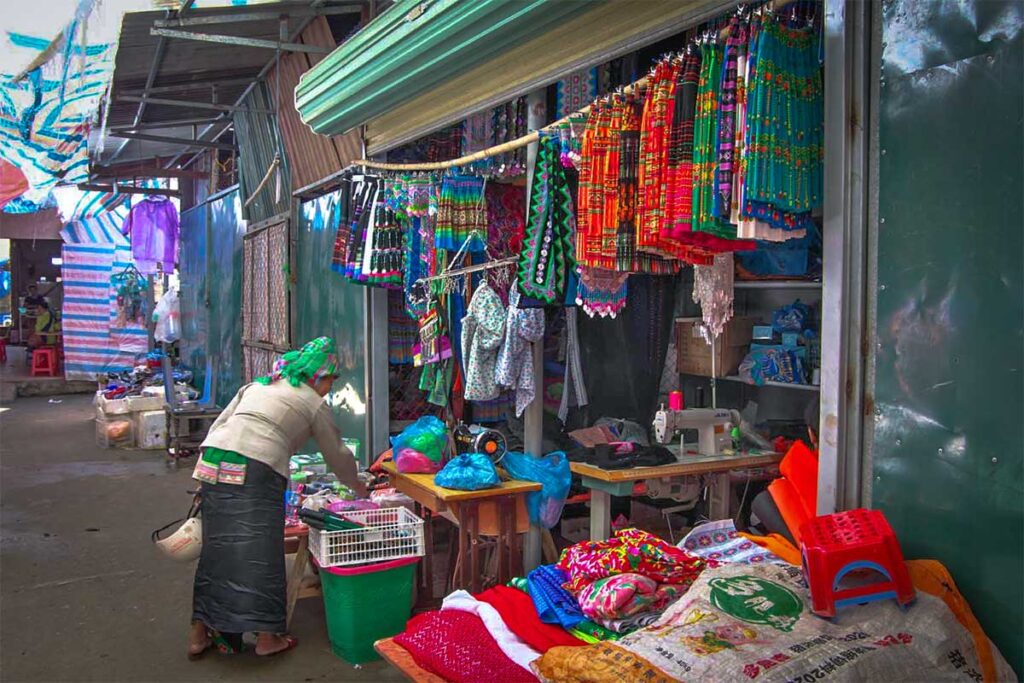
Lai Chau Central Market is a bustling center of local life, where ethnic minorities gather daily to trade goods. Clad in vibrant traditional attire, sellers offer everything from fresh produce to textiles and handicrafts. The market is also an excellent place to sample local foods and observe the dynamic cultural exchange of this remote province.
7. Tac Tinh Waterfall
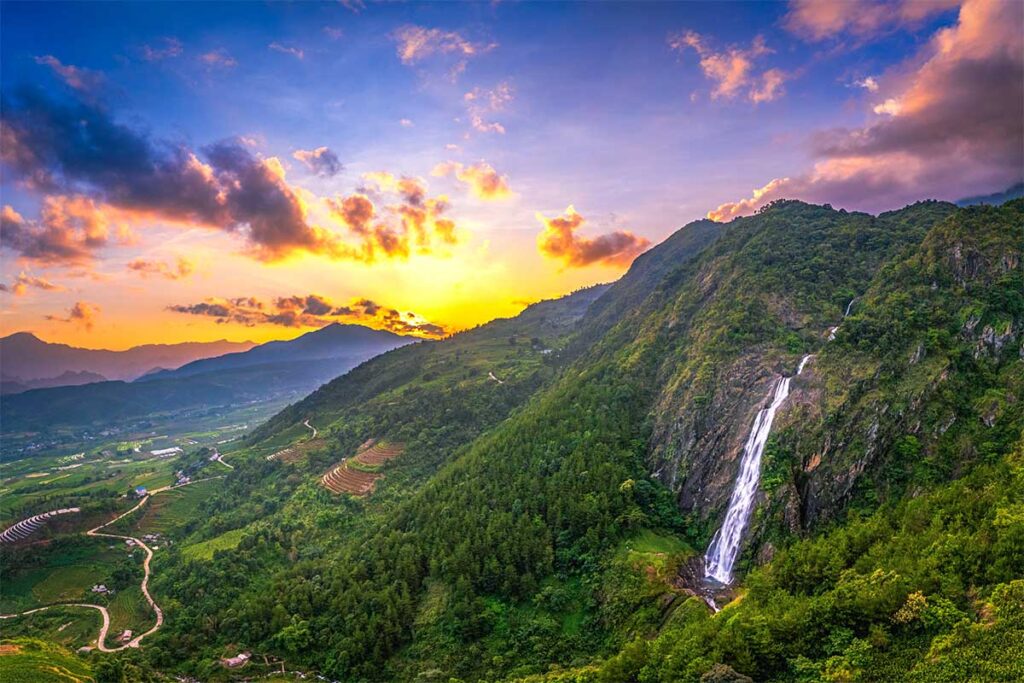
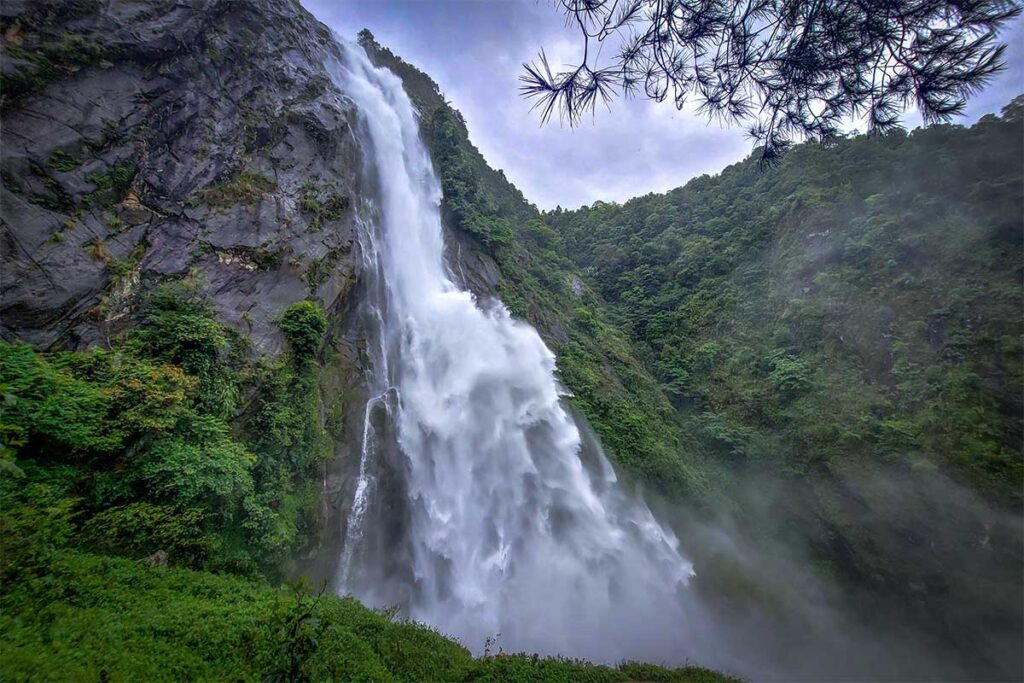
Tac Tinh Waterfall is a serene escape located at the end of a 30-minute uphill hike. The trail offers scenic views and a chance to observe traditional Hmong culture. At the waterfall, you can relax, take photographs, or cool off in the refreshing waters, making it a rewarding stop for nature enthusiasts.
8. Pu Sam Cap Caves
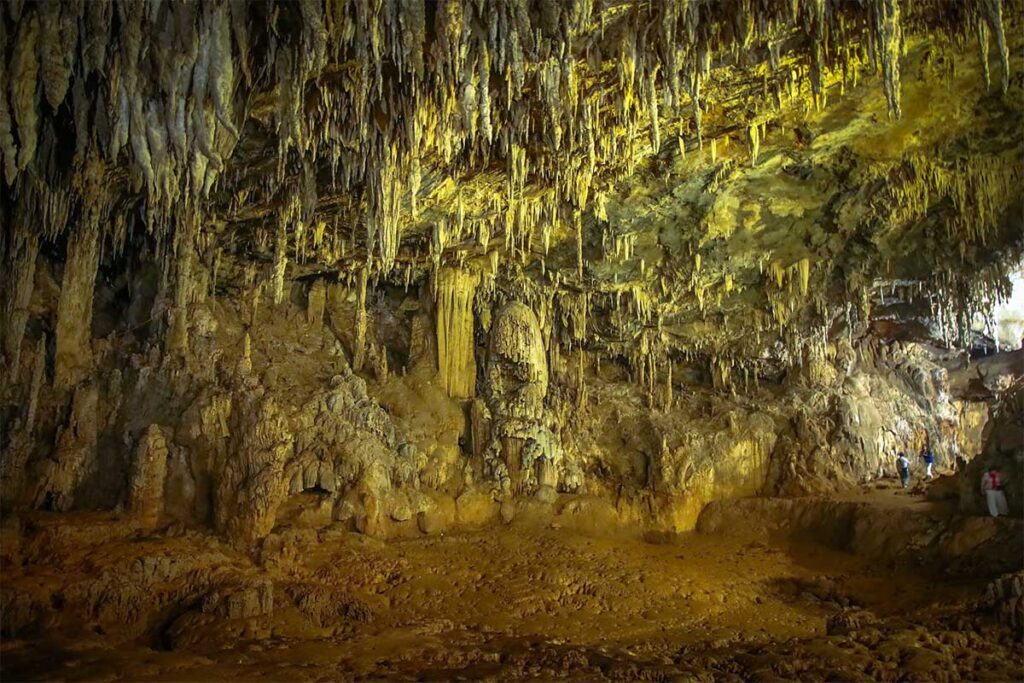
Perched at an altitude of 1,300 to 1,700 meters, Pu Sam Cap Caves are a geological marvel waiting to be explored. The adventure requires navigating natural paths and uneven terrain, making it a thrilling experience. Additional nearby caves, accessible by a short yet slippery hike, add to the sense of discovery in this hidden gem.
9. Putaleng Peak
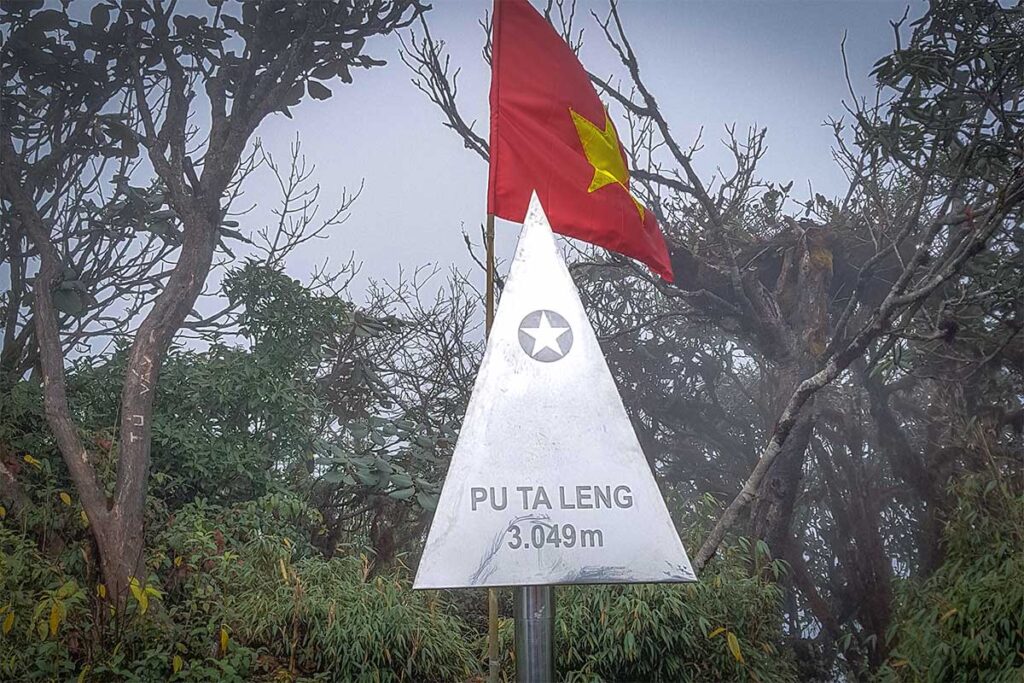
Standing at 3,049 meters, Putaleng Peak is Vietnam’s second-highest mountain and a true challenge for trekking enthusiasts.
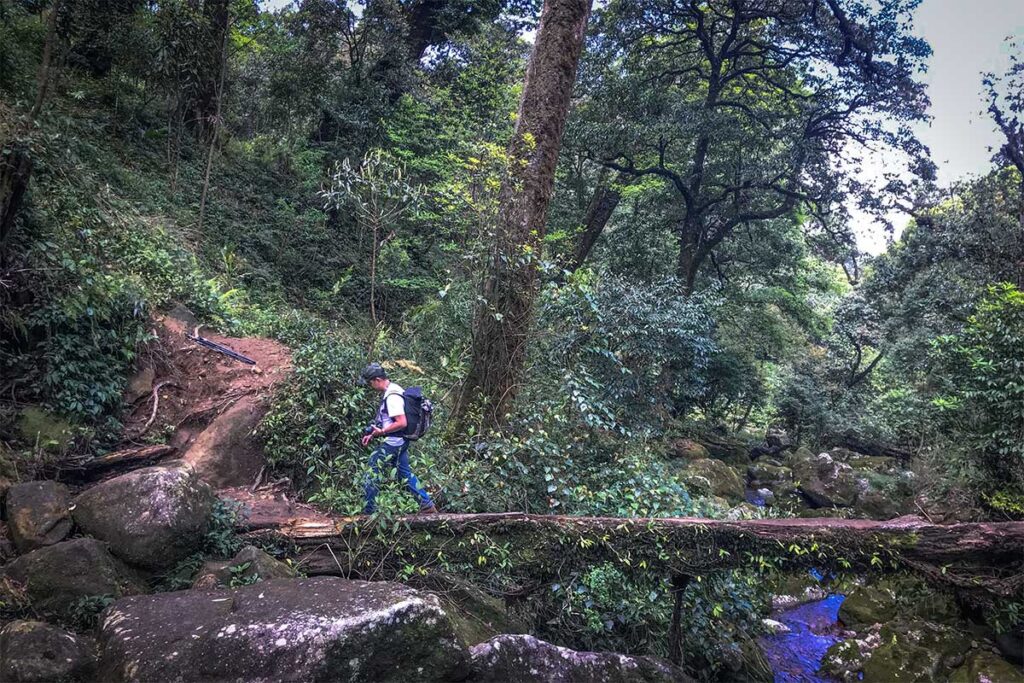
Unlike Fansipan, it offers no cable car, requiring a demanding three-day hike through pristine forests and rugged terrain. This climb rewards adventurers with unparalleled views and a sense of accomplishment.
10. Tam Duong Tea Hill
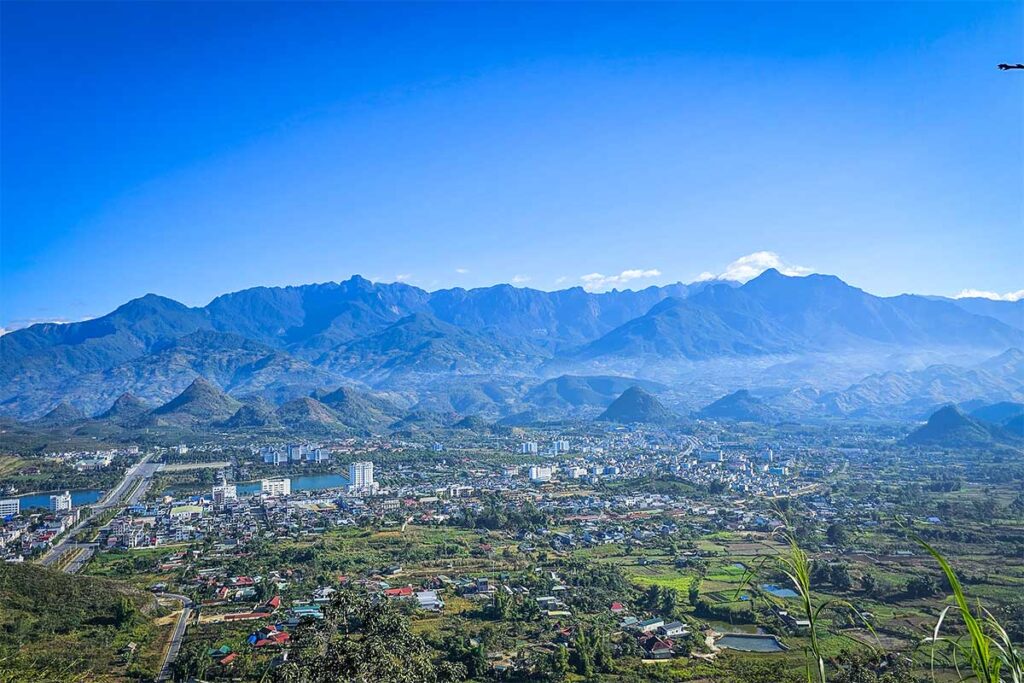
Tam Duong Tea Hill, close to Lai Chau town, provides a peaceful setting to enjoy the region’s natural beauty. While smaller than Sapa’s O Long Tea Hill, it offers scenic valley views and a chance to enjoy freshly brewed local tea at hilltop cafes. It’s a relaxing spot for a leisurely afternoon.
Where to stay in Lai Chau
Staying in Lai Chau Town
Lai Chau town offers basic but decent accommodation options, making it a practical base for exploring the surrounding province. Hotels like Muong Thanh Lai Chau Hotel provide clean and comfortable rooms, though the town itself lacks much character.
Countryside Stay
For a more authentic and scenic experience, consider staying in villages near Lai Chau town. Options range from basic ethnic homestays to cozy lodges. Villages like Te Leng, Si Thau Chai, and Sin Suoi Ho allow you to immerse yourself in local culture while being closer to natural and cultural highlights.
Travel itinerary for Lai Chau
This 2-day itinerary covers the best things to do in Lai Chau, starting from Sapa and showcasing the region’s natural beauty and cultural richness.
Day 1
- Depart from Sapa and enjoy a scenic drive.
- Stop at Love Waterfall for a short hike and relaxation.
- Cross the Tram Ton Pass for breathtaking mountain views.
- Visit Tac Tinh Waterfall, perfect for photos and a refreshing dip.
- Explore the Pu Sam Cap Caves for an adventurous experience.
- Stay overnight in Lai Chau town or an ethnic village such as Si Thau Chai.
Day 2
- Begin the day from Lai Chau town or a nearby village.
- Drive approximately 3 hours to Muong Than.
- Explore the vast and picturesque rice fields of Muong Than.
- Return to Sapa or extend your journey for a larger loop (+1-2 extra days).
